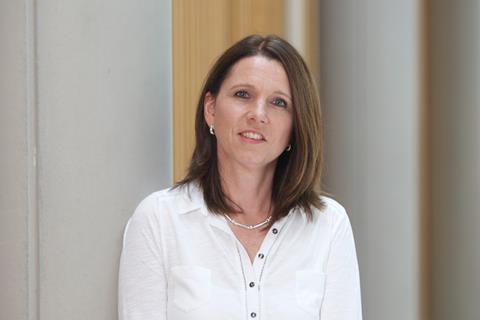Associate professor in public inquiry law and procedure, Nottingham Trent University
My interest in law was sparked by an environmental law module in the final year of a biology degree. On graduating I took the law conversion course and qualified as a solicitor, completing my training contract at Mills & Reeve. I specialised in commercial litigation and moved to Eversheds a couple of years later.

During my time in private practice, I handled major warranty disputes, multi-party actions and professional negligence claims. I built and headed a team of specialist environmental and regulatory dispute resolution lawyers in what was a rapidly changing and fascinating area of law.
My most rewarding work, though, was as part of the evidence-gathering team for the Bloody Sunday Inquiry. This looked into the events of 30 January 1972 and was convened as part of the government’s commitment to the principles of the Good Friday Agreement. The team of solicitors took evidence from more than 1,500 witnesses, including the military, RUC and civilians. This introduced me to the skill of cognitive interviewing and memory retrieval, and the public inquiry process, which is a unique hybrid of a political and legal process.
After 12 years in private practice, I joined Nottingham Law School. I teach on the LPC, SQE, and courses for qualified lawyers. Being an applied researcher enables me to engage with leading inquiry chairs, lawyers, civil servants and NGOs, worldwide, to examine and learn from their experience and expertise. It gives me the time and ‘headspace’ to step back, research, and reflect on the approaches, procedures and innovations of different public inquiries.
Completing my PhD on political and legal influences on the evolution of post-2005 public inquiries provided me with the contextual foundations of academic methodology and rigour for my ongoing research. I now publish material to improve procedure and the experience of those engaging with public inquiries, including some of the most vulnerable and marginalised in society. The aim is to influence legislative and policy changes and to promote a greater public and academic understanding of the public inquiry process.
'I was warned that the move from practice to teaching can be intense. Like many moving from private practice, I thought "how hard can it be in comparison?" The answer is "surprisingly hard"'
This includes The Practical Guide to Public Inquiries, a book I co-authored with members of the inquiries team at Eversheds Sutherland. This addresses the absence of published guidance on how to set up, design, run and engage with a public inquiry. It provides an authoritative guide for government departments, chairs, panel members, legal representatives and participants.
My applied research feels similar to work in practice, drawing on much of the same knowledge and skill set, though with a different emphasis. I was warned, however, that the move from practice to teaching can be intense. Like many colleagues moving from private practice, used to long working hours and demanding clients, I thought ‘how hard can it be in comparison?’. The answer is ‘surprisingly hard’. Course materials can be substantial. Teaching preparation and the teaching itself can make working days more intensive than most in practice, particularly in the first year or two. University processes create a very different, often more complex, environment than a faster-paced commercial practice, and teaching and supporting students requires a new skill set.
I was pleasantly surprised by how enjoyable and rewarding teaching is. The focus on mastering the depth and breadth of law and procedure is, again, a luxury that was not available in practice because of the demands of client work. Similarly, co-designing and delivering bespoke courses for qualified lawyers, for example in environmental and regulatory law for Freshfields Bruckhaus Deringer, and professional legal skills for the Ministry of Justice in Oman, has been fascinating.
Working to bridge the gap between practice and academia offers the best of both worlds. What I love most about working in legal academia is that it provides the opportunity to work alongside expert practitioners at the cutting edge of legal and public inquiry practice, while providing the space to question established norms and engage with new ideas. It allows me to shape practice and the learning of the next generation of practitioners, and to collaborate with others to enable positive changes in society.































No comments yet